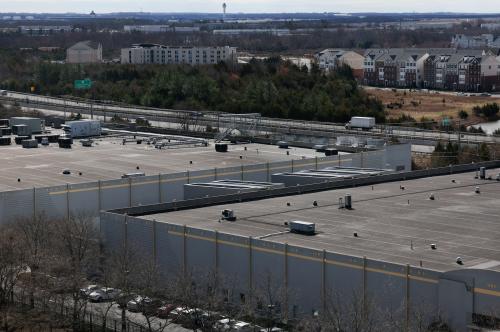“Let me say at the outset that our entire federal tax code needs to be overhauled,” said Treasury Secretary Jacob J. Lew at Brookings today during remarks on the state of the U.S. economy and the Obama administration’s priorities for 2015, with a particular focus on building shared prosperity for all Americans and business tax reform. Secretary Lew proposed that “there is a broad set of business tax reforms on which we should be able to agree. And I continue to believe that the best way to achieve reform today is to start with pro-growth business tax reform that protects and strengthens the middle class, lowers rates, simplifies the system, levels the playing field, and eliminates unfair and inefficient loopholes.”
The Hutchins Center on Fiscal and Monetary Policy at Brookings hosted the event, and center Director David Wessel moderated a Q&A session following the secretary’s remarks. Watch the event below:
Secretary Lew called the current business tax system “far too complicated,” with too many loopholes and a wide disparity in effective corporate tax rates. He called particular attention to the practice of inversion, where a U.S.-based company avoids paying taxes by buying a foreign company and then declaring that it is no longer a U.S.-based business. “I have consistently said that while inversions may be legal,” he argued, “they are wrong. But unfortunately, we have a tax code that encourages these decisions.”
Secretary Lew laid out the five pillars of the administration’s proposal for a new business tax system:
1. Lower rates and close wasteful loopholes.
2. Build on the resurgence of manufacturing in the United States.
3. Reform the international tax rules that encourage companies to shift income and investment overseas.
4. Simplify and reduce taxes for small businesses.
5. Fix “our broken tax code and increase investment in a way that maintains current revenues.”
The secretary also called for investing the “one-time revenues” that would ensue from tax reform in infrastructure. “Rebuilding America’s core infrastructure will have the long-term benefit of making America a more attractive place to invest and do business so that our economy is stronger, not just for today, but for the future,” he said.
Get more information about the event here.
The Brookings Institution is committed to quality, independence, and impact.
We are supported by a diverse array of funders. In line with our values and policies, each Brookings publication represents the sole views of its author(s).




Commentary
VIDEO: Treasury Secretary Jack Lew Describes New Business Tax System
January 21, 2015